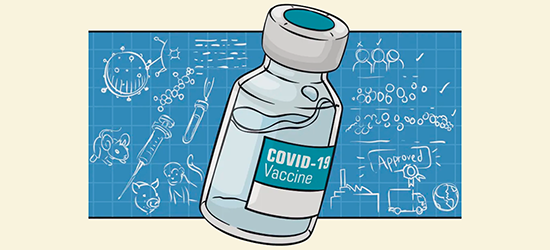||| FROM ANNE PRESSON for ORCAS ISLAND HEALTH CARE DISTRICT |||
Need a good news boost? Look no further than the arrival of COVID-19 vaccine boosters.
Recently authorized by the CDC and the FDA for the Pfizer vaccine and for certain groups of people, boosters are here to protect higher risk populations from severe COVID-19 infections.
While there’s been a lot of news about boosters in recent weeks, there’s also a lot of confusion. You may be wondering if multiple shots are necessary, regardless of your vaccination status. You may also be wondering if you’re currently eligible, or when you might be.
Bottom line? Boosters will be important to fight COVID-19 — especially with new variants on the rise. But they’re not recommended for everyone.
Read on to learn if you’re currently eligible for a booster, and if it’s worth considering.
What is a booster shot?
A booster refers to a dose of a vaccine that is given to someone who built enough protection after vaccination, but that protection decreased over time (known as waning immunity). The booster is intended to give your immunity “a boost” and provide you with increased immunity for a longer time.
Chances are, you’ve already had many boosters in your lifetime. Boosters are effectively used in routine vaccinations to protect against diseases like chickenpox, tetanus, mumps, and measles.
And that’s not something new to COVID-19, either. Since the COVID-19 vaccines were first introduced, scientists have acknowledged that boosters might be needed.
Why is it necessary?
The COVID-19 vaccines are very effective at reducing the risk of severe disease, hospitalization, and death, even against the delta variant. Still, the current vaccines decrease in protection over time, especially among high-risk populations.
The data on the effectiveness of boosters is limited, but encouraging. Researchers found that a Pfizer booster shot increased the immune response for those who got both (Pfizer) doses six months earlier.
Who’s currently eligible for a booster?
You should get a booster if your second dose of the Pfizer vaccine was at least six months ago and you’re in one of the following groups:
- 65 years and older
- 18+ and live in a long-term care facility
- 50–64 with certain underlying medical conditions
You should also consider a booster if you’re in one of the groups listed below, depending on your individual risk factors:
- 18+ who live or work in high-risk settings
- 18–49 with certain underlying medical conditions
Right now, only those who received the Pfizer vaccine are eligible for a booster dose. If you received the Pfizer vaccine and aren’t sure if you should get a booster, talk to your health care provider.
I’m currently eligible. How do I make an appointment and what should I expect?
You can make an appointment with your health care provider or at your local pharmacy. To find a vaccine location near you, visit Vaccine Locator or call the COVID-19 Information Hotline at 1–800–525–0127, then press #. Language assistance is available.
Remember to take your vaccination card with you so you can show that you already had both doses of the Pfizer vaccine. If you don’t have your card, the provider can look up your record — or you can access your records using MyIR Mobile.
You can also self-report if you are eligible for a booster. You don’t need to show proof or have a note from your doctor.
Like the first two doses, this booster shot is provided at no cost to you. As for side effects, you can expect a similar reaction to your initial shots — with mild to moderate side effects that may last a couple of days. The most common side effects of the boosters were injection site pain, fatigue, and headache.
Will others be eligible soon? Will I still be protected from COVID-19 without one?
Don’t worry if it’s not your turn yet. If you’re fully vaccinated, you have effective protection against severe disease, hospitalization, and death.
There’s currently no data available about the effectiveness of boosters for other populations we haven’t mentioned. But that may change as more data becomes available through additional research.
What about those who didn’t get the Pfizer vaccine?
Booster doses might be recommended in the future for those who received Moderna or Johnson & Johnson vaccines, but right now there isn’t enough research to make that call. More research on the effectiveness and safety of these booster shots is ongoing and expected soon. In the meantime, don’t mix COVID-19 vaccines. There is very limited data about the safety and effectiveness of doing so.
What’s the difference between a booster and a third dose?
Though they’re often used interchangeably, there’s a distinction.
A third dose (also known as an additional dose) is for people who are immunocompromised. Sometimes people who are immunocompromised do not build enough protection when they first get fully vaccinated. When this happens, getting another dose of a vaccine can help them build more protection against the disease.
A booster refers to a dose of a vaccine that is given to someone who built enough protection after vaccination, but that protection decreased over time (waning immunity).
You can learn more about the difference in our recent blog.
**If you are reading theOrcasonian for free, thank your fellow islanders. If you would like to support theOrcasonian CLICK HERE to set your modestly-priced, voluntary subscription. Otherwise, no worries; we’re happy to share with you.**








